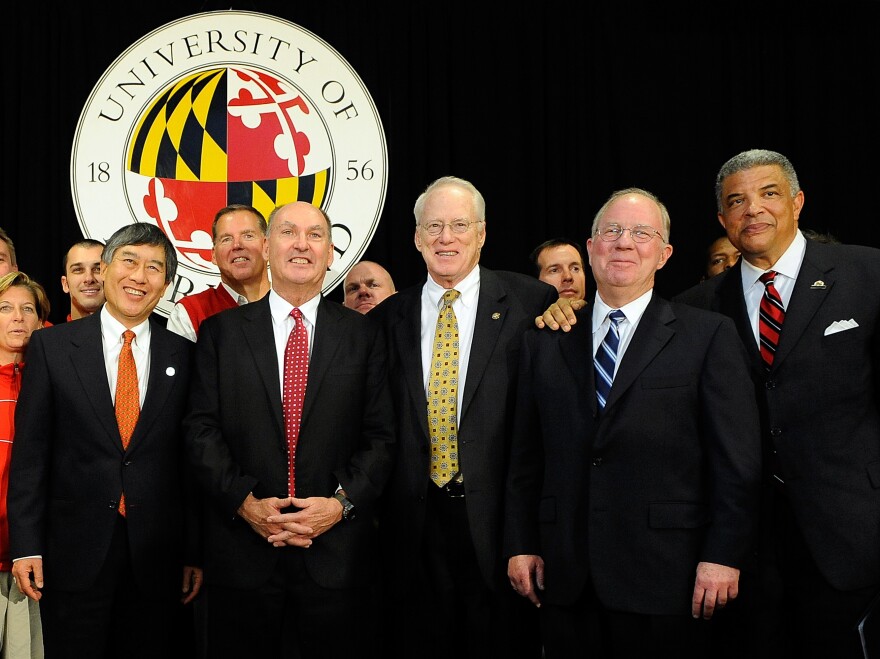What do anti-abortion beliefs, and patronizing Chick-fil-A, and a devotion to college sports have in common? Hmm.
Well, according to Trey Grayson, the former Kentucky secretary of state and U.S. Senate contender who is now the distinguished head of the Harvard Institute of Politics, those are the trio of giveaway markers to suggest that you are conservative.
In the past, whenever sports have been collated with politics, NASCAR has usually been cited as a giveaway conservative identity fan factor. But the idea, expressed most directly by Mr. Grayson, that rabid fans of college sports can be a distinctively different ideological species from the pro variety is taking on a certain currency.
It was revealing last week that when the Big Ten — which has always been sort of the mascot of muscular Midwest America — took in the University of Maryland and Rutgers to attract television viewers in the New York and Washington, D.C.-Baltimore areas, the savvy reaction was, "Doesn't the Big Ten know that the socialistic fans in the European-cozy Northeast don't give a hoot about college sports?"
By contrast, the old Confederacy and that flyover part of the northwestern Louisiana Purchase is crazy for college sports — especially football — and that, of course, is precisely the conservative heartland.
We even have demographic maps made by an associate geography professor named Theodore Goudge at Northwest Missouri State, which show where the Division I football players come from. And you can virtually overlay a presidential election map from this year with professor Goudge's gridiron map and see that college football players per capita equal Republican majority.
But a caveat. The sectional adoration for college sports may have no relationship whatsoever with either political or Chick-fil-A preference.
It may simply be that wherever honest grown-up professional sports abound, attention to second-rate, NCAA shamateur sports gets diminished. The Southeastern Conference, in particular, may be so popular primarily because Dixie possesses so many fewer pro teams compared with the East, West and Midwest.
I was in Oklahoma City the other day, which happens to be the most recent American metropolis to get a major league team, the NBA Thunder. Previously, Oklahoma lived and died for its Sooners. Well, folks, the Thunder is already stealing thunder from the old alma mater.
As somebody in Oklahoma City explained the new consensus to me: "Used to be, when the Sooners lost, we despaired for a week. We still care, you understand. But when the Sooners lose now, we tend to say, 'Well, sure, too bad — but we got a Thunder game Tuesday.' "
Basically, sports is primarily a class thing, and the pros are simply a higher class than the colleges. It's a better product. Yes, yes, I know college games can be entertaining, and there's loyalty and tailgating. But wherever fans are, give them a choice — they'll gravitate toward the best.
So I'm sorry, Mr. Big Ten, but I don't know a soul who's going to watch Rutgers and Maryland play Wisconsin and Illinois, when the Giants and Ravens — and even the Redskins and Jets — are hanging out in the neighborhood.
Copyright 2020 NPR. To see more, visit https://www.npr.org. 9(MDA1MjI2NzUxMDEyNzQyMTY5MjQ2YzkwNA004))



